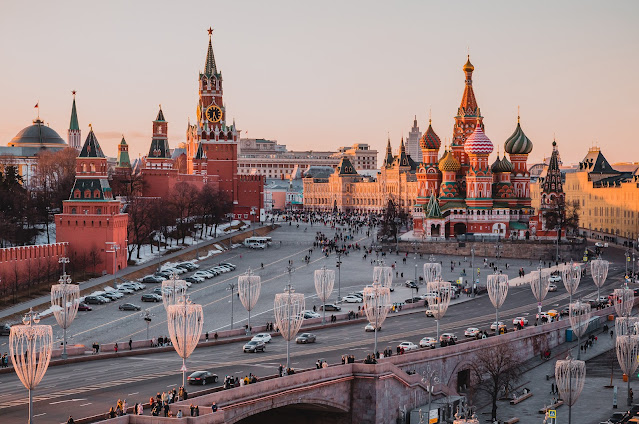Though we rarely consider it, war isn't just fought on the battlefield – it's also fought in the marketplace.
The easiest way to win a war is to disrupt your opponent's supply of resources and make those resources available to your own military and economy instead; this often means controlling the ports through which goods enter and leave the country or finding different suppliers that can undercut your competitor's prices.
This concept is known as commodity war, and one of its primary weapons is natural gas.
What 'energy war' means
Russia's economy relies heavily on oil and natural gas exports, which are its leading source of revenue. But the country has been under increasing economic pressure in recent years because of sanctions imposed by Western countries that have hurt its ability to export to Europe, as well as a drop in global oil prices.
That led to a ruble devaluation, inflation, and an economic recession. And now Russia is at odds with Saudi Arabia and other OPEC countries that want to maintain high production levels to drive down prices. The Saudis don't like Russian competition because it threatens their dominant market position.
With cheap crude driving out expensive Russian supplies, Moscow's revenues from oil exports have plunged. What's more, the country has been hit hard by Western sanctions imposed after its war and invasion of Ukraine - many European companies refuse to buy gas from Moscow for fear they won't be able to get paid.
What does the Russian government want?
Russia wants to dominate the world's natural gas and oil production to fuel its economic growth. The country needs to do this for a couple of reasons: first, it needs these resources to meet its own demands; second, it wants to export them so that other countries will be dependent on Russian energy.
However, the problem with this plan is that Russia has only 15% of the global natural gas reserves. Countries like Qatar and Iran have more than four times as many. Regarding oil, Russia produces about 10% of what Saudi Arabia does.
How China benefits from all this
China has been in the process of developing a new Silk Road, connecting Asia to Europe. To do this, China needs to reduce its dependency on oil from the Middle East. One way of doing this is by investing in renewable energy and natural gas. This means that China will be buying more from Russia.
It also means that China will be selling more goods to Russia, which gives them a competitive advantage over other European countries and the United States, which need to be on board with renewables and natural gas use at the same level as China.
Is an all-out confrontation between China and the U.S. likely?
It's not likely that there will be an all-out confrontation between China and the U.S., but it's possible. The countries have different interests in Ukraine and other global hotspots and are unlikely to find common ground soon.
The world has seen many examples of what happens when the two go head-to-head over different issues, such as the Cuban Missile Crisis. A new conflict might not look like missiles flying back and forth but rather a series of clashes in other parts of the world where they compete for influence.
For example, China already supports North Korea with food and oil while the U.S. provides food aid to South Korea; both sides need to keep trade routes open with Iran; Beijing needs access to Middle Eastern oil, while Washington still wants Saudi Arabia on its side. That kind of rivalry can occur without either country directly fighting the other.
